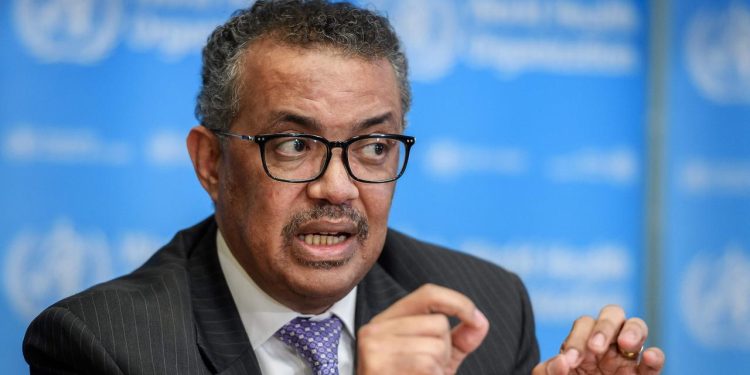World Health Organization (WHO) Director-General Tedros Ghebreyesus has urged nations to endorse the organization’s pandemic treaty, aiming to ready the world for the potential emergence of “Disease X.”
Addressing an audience at the World Economic Forum in Davos on Wednesday, Ghebreyesus expressed his hope for countries to finalize a pandemic agreement by May, emphasizing the need to confront this “common enemy.”
“Disease X” represents a theoretical virus, currently non-existent, but scientists suggest it could be 20 times more lethal than COVID-19. It was included in the WHO’s list of pathogens for research in 2017 due to its potential to cause a “serious international epidemic,” as indicated in a WHO press release from 2022.
Ghebreyesus highlighted that COVID-19 served as the inaugural instance of Disease X and underscored the importance of proactive preparation for future pandemics.
“There are things that are unknown that may happen, and anything happening is a matter of when, not if, so we need to have a placeholder for that, for the diseases we don’t know,” Ghebreyesus said.
“We lost many people [during COVID] because we couldn’t manage them,” Ghebreyesus said at the global confab. “They could have been saved, but there was no space. There was not enough oxygen. So how can you have a system that can expand when the need comes?”
He emphasized that a collective response through the treaty would enhance the world’s ability to respond effectively to any future outbreak.
“The pandemic agreement can bring all the experience, all the challenges that we have faced and all the solutions into one,” Ghebreyesus said. “That agreement can help us to prepare for the future in a better way.”
“This is a common global interest, and very narrow national interests should not come into the way.”
Ghebreyesus mentioned that autonomous panels and experts have been collaborating on strategies for a unified response, with a May deadline set for the signing of the treaty.
He outlined that some of the readiness measures might involve establishing an early-warning system, coordinating supply chains, and advancing research and development for drug testing. Additionally, a critical focus on primary health care is essential, considering the challenges faced by affluent nations during COVID, where basics like contact tracing proved to be a struggle.
“It’s better to anticipate something that may happen because it has happened in our history many times, and prepare for it. We should not face things unprepared; we can prepare for some unknown things, as well.”
In March 2021, global leaders gathered to declare the initiation of negotiations and the drafting of a treaty.
“The main goal of this treaty would be to foster an all-of-government and all-of-society approach, strengthening national, regional and global capacities and resilience to future pandemics,” a statement put out by two dozen heads of state reads.
“This includes greatly enhancing international co-operation to improve, for example, alert systems, data-sharing, research and local, regional and global production and distribution of medical and public health countermeasures such as vaccines, medicines, diagnostics and personal protective equipment.”
The global pandemic treaty was under negotiation by the Biden administration last year. Critics from the GOP have argued that such an accord would relinquish sovereignty to the WHO.
“The World Health Organization pandemic treaty is very vague, it affects our sovereignty, and it could be exploited to tell Americans what kind of health care they need in the event of a global pandemic,” Rep. Tim Burchett, R-Tenn., said at a May press conference.
 Telegram is where we really talk. Don't miss out!
Telegram is where we really talk. Don't miss out!








